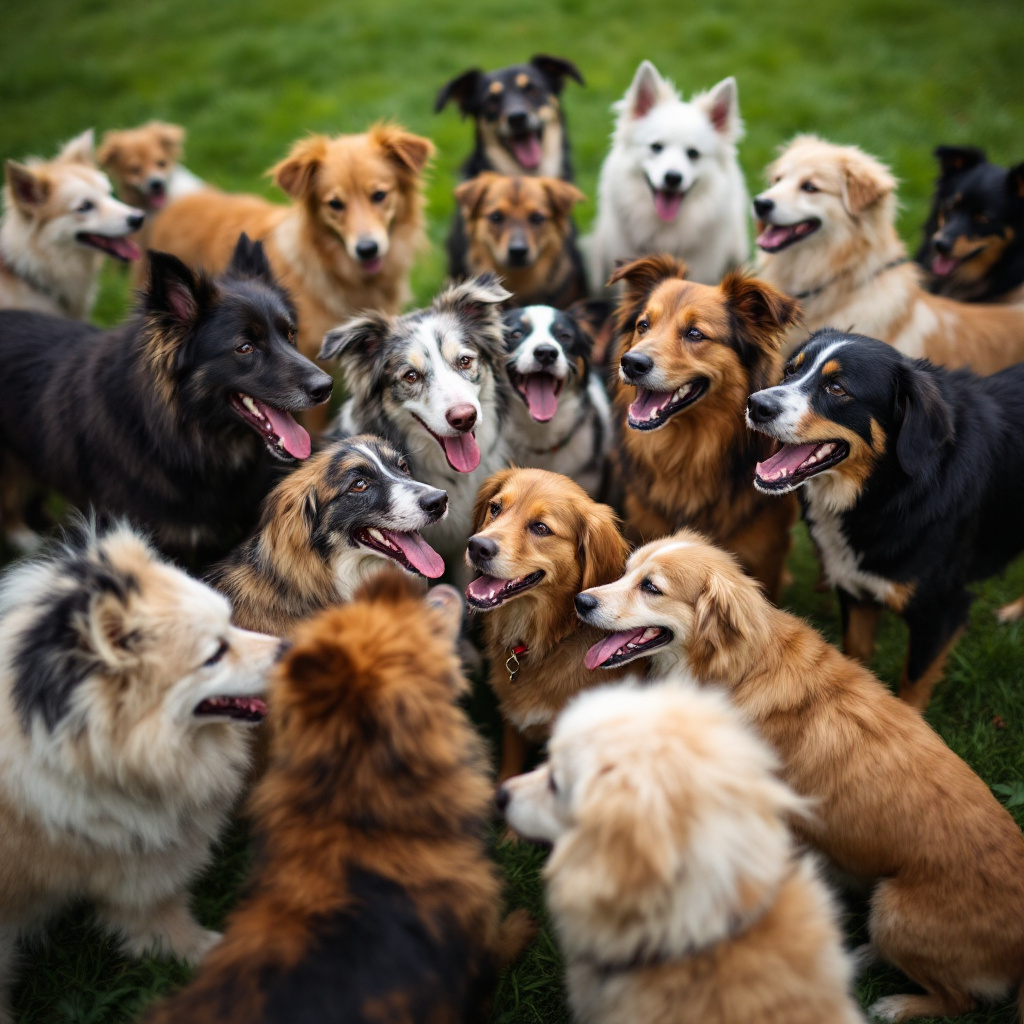The basics of dog ownership costs: what you need to know
A dog is not only a loyal companion, but also a long-term financial responsibility. Before deciding to welcome a four-legged family member, it's important to understand the basics of dog ownership costs - yes, it's not just about food and treats! This article provides a comprehensive overview of the typical expenses dog owners face and helps to create a realistic budget.
Getting started: purchase costs and basic equipment
The journey of dog ownership begins with choosing the right dog. Depending on the breed and place of origin, the purchase costs vary greatly:
- Purchase price: A dog from a breeder can cost between 500 and several thousand euros. Alternatively, animal shelters are an option, where the admission fee is significantly lower.
- Basic equipment: You will need basic equipment before your dog arrives. This includes a lead, collar or harness, food and water bowls, a comfortable basket or blanket and toys. You can expect to pay around 150 to 300 euros for this.

The running costs: feeding and care
It may come as no surprise, but food is at the top of the list of costs. An adult dog can cost between 30 and 100 euros a month in food costs, depending on size and food preference. But that's not all:
- Veterinary costs: Regular check-ups are crucial for your dog's health. Vaccinations, worming and annual health checks add up to around 100 to 200 euros per year.
- Care: Long-haired breeds often require more grooming, which can mean additional costs for special grooming products or even professional dog salons. Expenditure here can vary between 50 and 300 euros per year.
Breed-specific costs
Not all dogs are the same - and that also applies to their costs. Different breeds have different needs and ultimately different financial requirements:
- Small breeds: They are often easier on the budget as they need less food and often have lower vet costs.
- Large breeds: Bigger mouths mean bigger food bills. Grooming particularly large dogs can also be more expensive.
- Speciality breeds: Some breeds, such as the French Bulldog or breeds with special care needs, require regular visits to the vet, which drives up the costs.
Training and training costs
A well-trained dog is a happy dog - and a happy owner too! However, training costs can put a strain on the budget. Most dog owners spend around 100 to 300 euros per course. Professional dog trainers often charge between 30 and 100 euros per hour.
Make sure that good training does not just consist of a formal class. Continuous training and repetition at home are crucial for success.
Unforeseen expenses and insurance
Life is unpredictable, and although we don't like to think about it, unexpected veterinary costs can occur. An operation or an acute illness can cost hundreds, if not thousands, of euros. This is where pet health insurance comes into play, which many owners take out. This insurance costs between 20 and 50 euros per month, but can cover immense costs in an emergency.
In addition, dog owners should also consider liability insurance, which is often available for 30 to 100 euros per year. This covers damage that your dog accidentally causes.
Total costs at a glance
Let's put the figures on the table: How deep do you have to dig into your pockets each month? Here is a rough summary, which naturally varies - but can still serve as a guide:
- Lining: 30 to 100 Euro
- Veterinary surgeon: 10 to 20 euros (calculated on average)
- Care: 4 to 25 Euro
- Insurance: 10 to 25 Euro
- Other (toys, treats, etc.): 10 to 30 Euro
To summarise: The basics of dog ownership costs vary significantly depending on the breed, lifestyle and individual needs of the dog. However, expect to pay between €60 and €200 per month to keep your best friend healthy and happy.
Conclusion
The basics of dog ownership costs are varied and require careful planning. Regardless of the breed or lifestyle, it is crucial to consider all aspects to avoid financial surprises. With proper preparation and budgeting, the dog will not only become a part of the family, but a joy in life that will be appreciated. So, grab your calculator and the lead - it could be the start of a beautiful friendship!
Frequently asked questions about dog ownership
What do you have to pay for a dog?
If you get a dog, you not only have to think about the initial costs, but also about ongoing expenses such as food, visits to the vet, grooming products and insurance. In addition, training sessions are often necessary to train the dog well, which can also be expensive.
How much does it cost to keep a dog?
The cost of keeping a dog varies depending on its size and state of health. For a small, healthy dog, you can expect average annual costs of around €360, while larger dogs can cost up to €2,400 per year.
Which laws are relevant to dog ownership?
Numerous legal regulations are relevant to dog ownership. Sections 833, 843, 844 and 847 of the German Civil Code (BGB) form the legal basis. In addition, there are the dog laws of the federal states as well as local regulations that govern, among other things, the obligation to keep dogs on a lead, compulsory muzzling and liability. These regulations are important in order to fulfil the legal requirements and avoid conflicts.
Author
-

David is a passionate aquarist with more than 20 years of experience in setting up and maintaining freshwater and saltwater aquariums. He specialises in the biodiversity of aquatic ecosystems, aquascaping and the species-appropriate keeping of aquarium fish. His articles on haustierewissen.de are a treasure trove for aquarium enthusiasts looking for sound advice and creative ideas for their underwater worlds.
View all posts




